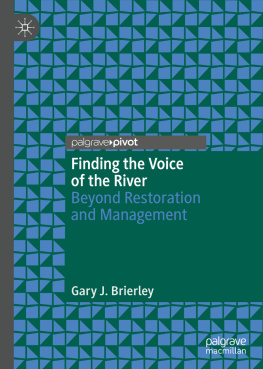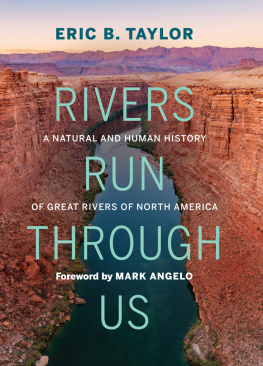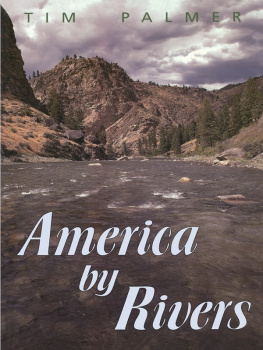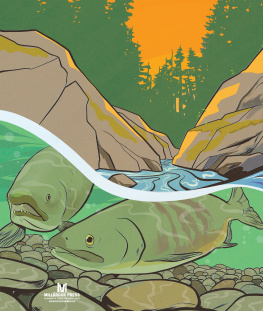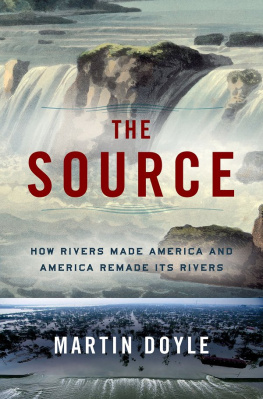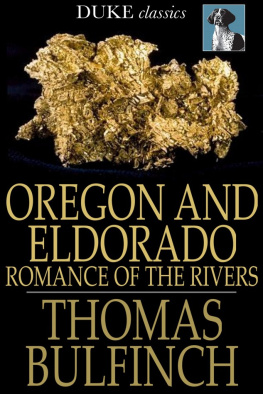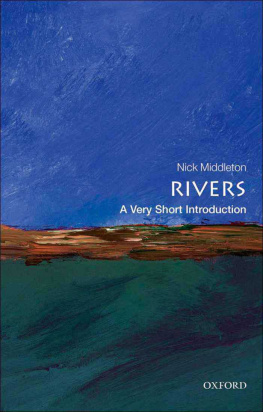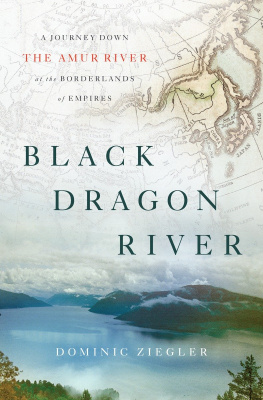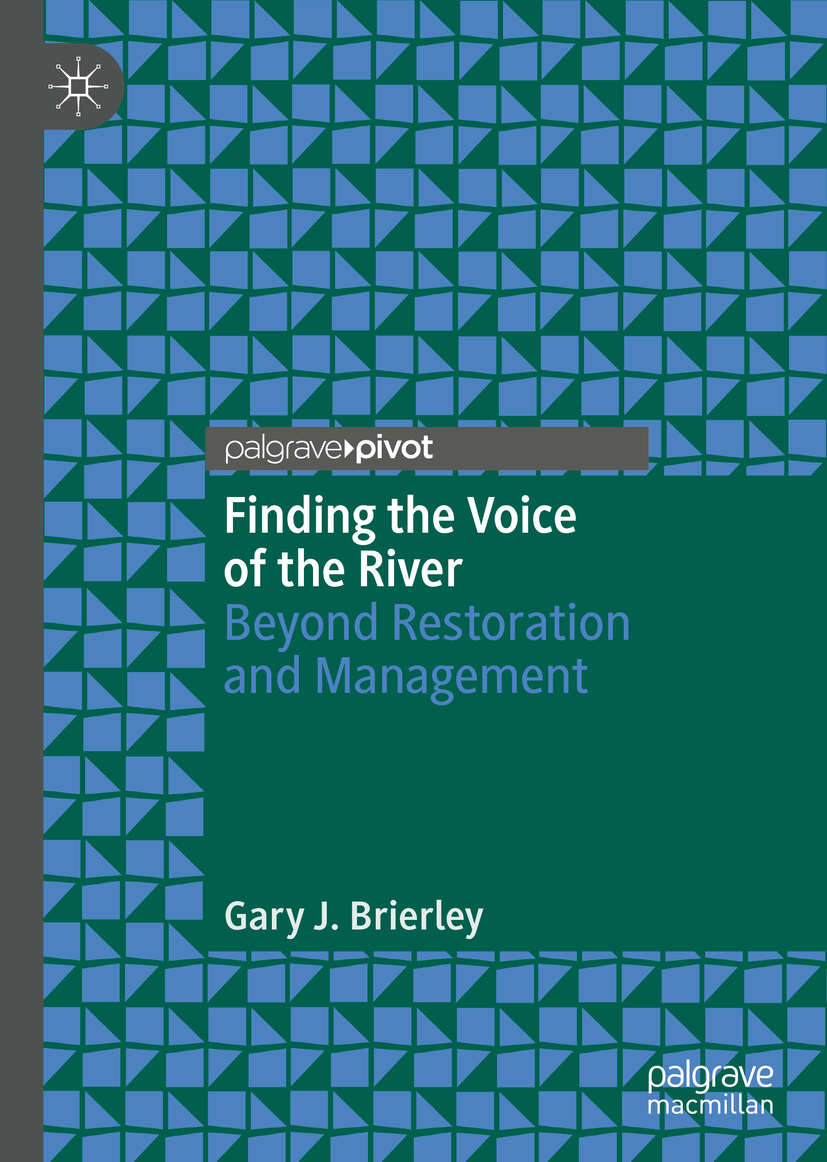Gary J. Brierley
School of Environment, University of Auckland, Auckland, Aotearoa, New Zealand
ISBN 978-3-030-27067-4 e-ISBN 978-3-030-27068-1
https://doi.org/10.1007/978-3-030-27068-1
The Editor(s) (if applicable) and The Author(s), under exclusive license to Springer Nature Switzerland AG 2020
This work is subject to copyright. All rights are solely and exclusively licensed by the Publisher, whether the whole or part of the material is concerned, specifically the rights of translation, reprinting, reuse of illustrations, recitation, broadcasting, reproduction on microfilms or in any other physical way, and transmission or information storage and retrieval, electronic adaptation, computer software, or by similar or dissimilar methodology now known or hereafter developed.
The use of general descriptive names, registered names, trademarks, service marks, etc. in this publication does not imply, even in the absence of a specific statement, that such names are exempt from the relevant protective laws and regulations and therefore free for general use.
The publisher, the authors and the editors are safe to assume that the advice and information in this book are believed to be true and accurate at the date of publication. Neither the publisher nor the authors or the editors give a warranty, express or implied, with respect to the material contained herein or for any errors or omissions that may have been made. The publisher remains neutral with regard to jurisdictional claims in published maps and institutional affiliations.
This Palgrave Pivot imprint is published by the registered company Springer Nature Switzerland AG.
The registered company address is: Gewerbestrasse 11, 6330 Cham, Switzerland
Preface
With societal relations to rivers at its core, this book expresses a river-centric view of the worlda plea to live with rivers, and with each other, in compassionate and respectful ways.
Contemporary times are characterized by profound unease, unrest and disquiet, troubled by the extent and pace of change on the one hand, and the ineptitude of political institutions and governance arrangements that purportedly act in the interests of society on the other. Despite incredible potential, equitable practices that serve the greater good have been pushed aside.
Across much of the planet, rivers have been marginalized from the lives of much of human societythey have been othered. Physical and psychological separation accentuates disconnection, unconsciously furthering neglect. Whether piped and built over in urban areas, channelized and canalized to suppress their voice, or treated with disdain as gutters, drains and sewers, day to day relations with many contemporary watercourses limit positive experiences to our imagination. More frequently, connections to riverscapes reflect idealized natures expressed within the realms of virtual reality, gaming worlds or theme parks.
Despite their fundamental importance to human society, rivers have been treated with such disdain that they are now in a perilous state. In these crazy times of denial and doubt that shape The Great Derangement (Ghosh 2016), efforts to improve river health start by acknowledging that human endeavours created these problems, recognizing that it is our responsibility to address them. Two very different approaches to river repair are available, framed here as Medean (competitive) and Gaian (cooperative) options. Rather than managing rivers to achieve particular anthropogenic goals, this book outlines a more-than-human approach to living with living rivers, conceptualizing rivers as sentient entities that are allowed to express their own voice. Adoption of a duty of care conceptualizes the river as a living entityan indivisible whole, from the mountains to the seaminimizing harm and embracing measures to improve its health, respecting the rights of the river itself.
As environmental conditions deteriorate, populations grow and locked-in path dependencies become harder to revoke, choices for prospective futures become increasingly more limited, constraining prospects for future generations. The warning signs are clear. Rather than sleepwalking into oblivion, we know the consequences of our actions, despite significant frustration at the ineptitude of societal and institutional responses.
This book is written for a generalist audience. It is a Geography book, written by a Physical Geographer. Being disruptive and working across boundaries are liberating traits of geographic enquiry. Although the book has an environmental focus, it is framed as an argument in popular philosophy, contemplating the agency of rivers as sentient entitiesplace-beings. It relates situated place-based knowledges (concerns for a given river) to global considerations (concerns for all rivers).
Deliberations are assuredly upbeat and aspirational, applying a strategy of hope that envisages the glass as half-full rather than half-empty, reflecting that it pays to dream, engaging with the world as it could be.
The book has a linear structure, and is intended to be read from front to back rather than dropping in and out of chapters (though boxes present occasional digressions, as examples, personal anecdotes or river stories). Chapter applies a river health metaphor and an analogy with medical practice to present a rallying call to look after rivers in more respectful ways through place-based approaches to river repair (finding and enacting the voice of the river).
How societies choose to live with rivers is a microcosm of their relations with the world and each other. These are big issues to consider in a short book.
Gary J. Brierley

